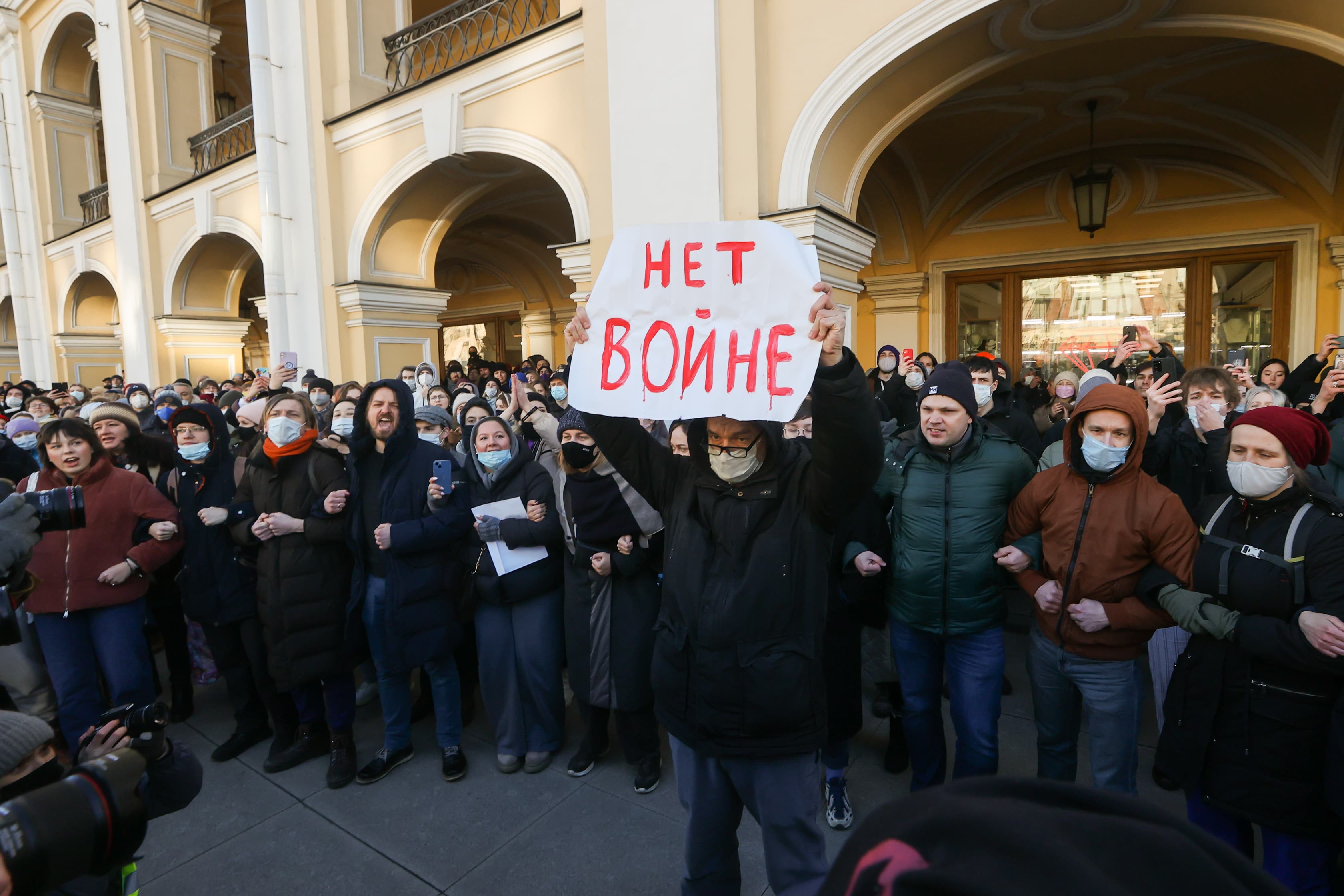
U.S. tech companies like Google, Facebook and Twitter have started to respond to Russia’s invasion of Ukraine by attempting to stop the spread of disinformation and demonetizing ads that run on Russian state media accounts.
Ukrainian digital minister Mykhailo Fedorov posted public messages on Telegram and Twitter to put pressure on tech leaders in an attempt to drum up support.
Some companies had already started to make changes.
Meta, which owns the global social media giant Facebook, said Monday it removed a network run by people in Russia and Ukraine that “ran a handful of websites masquerading as independent news outlets, publishing claims about the West betraying Ukraine and Ukraine being a failed state.”
It also identified a hacking and phishing attempt by Ghostwriter, a well-known threat perpetrator, to disseminate YouTube videos purporting to show Ukrainian troops surrendering to Russian forces. Over the weekend, Facebook said it demonetized Russian state media accounts and began to add new safety features to Ukrainian accounts, like the option to lock a user profile or hide a friend’s list.
After speaking with Kyiv officials, the company also said it would restrict access to several accounts in Ukraine, including some Russian state media organizations. It’s also “reviewing other government requests to restrict Russian state controlled media,” Facebook said.
Google-owned YouTube on Saturday said it would also prevent some Russian companies, including state-run news company RT, from making money on the videos they post on YouTube. It said it will also restrict access to RT and a number of other channels in Ukraine.
In addition, Google cut some Google Maps features in Ukraine in an effort to protect citizens, according to Reuters, which said the company removed live traffic from the app and disabled a feature that shows how busy stores are.
Meanwhile, Twitter said last week it was “actively” monitoring the risks and working to remove disinformation. It’s also suspended advertisements in Ukraine and Russia. Twitter’s head of site integrity, Yoel Roth, said Monday the platform would start labeling tweets that share links to Russian state-affiliated media websites.
“Since the invasion, we’ve seen more than 45,000 tweets a day sharing links to Russian state-affiliated media outlets. While we’ve labeled the accounts of hundreds of global state media outlets for years, tweets sharing their content lacked visible context,” Roth said.
Federov said he sent a letter last week to Apple CEO Tim Cook, asking him to stop supplying Apple services, including the App Store, and products to Russia. That could help young Russians to “proactively stop the disgraceful military aggression,” Federov wrote.
Apple did not immediately respond to a request for comment.
Federov also called out Tesla and SpaceX CEO Elon Musk, asking him to provide Starlink equipment to Ukraine. “While you try to colonize Mars — Russia try to occupy Ukraine! While your rockets successfully land from space — Russian rockets attack Ukrainian civil people! We ask you to provide Ukraine with Starlink stations and to address sane Russians to stand,” he said.
Musk responded later in the day, saying, “Starlink service is now active in Ukraine. More terminals en route.”
Still, some global leaders say Big Tech hasn’t responded aggressively enough. The prime ministers of Poland, Estonia, Lithuania and Latvia sent a letter Sunday to the leaders of Facebook, Google, YouTube and Twitter, calling on them to “take a stand.”
“Although the online platforms have undertaken significant efforts to address the Russian government’s unprecedented assault on truth, they have not done enough,” said the letter shared by Estonia Prime Minister Kaja Kallas. “Russia’s disinformation has been tolerated on online platforms for years; they are now an accessory to the criminal war of aggression the Russian government is conducting against Ukraine and the free world.”






















